People in Music at GT
Music is many, many things. And the people who are part of the sprawling Georgia Tech School of Music community are a testament to that. They come from all over campus, and all over the world, to enjoy the creative experience of performing in, or directing, one of Georgia Tech's many ensembles (which has a very busy spring performance schedule happening now); or they come from the School itself, students studying music technology, and faculty teaching it. They are musicians, composers, scientists, and engineers. Faculty members have become thought leaders in their rapidly evolving fields. And the students, even as they develop incredible chops on traditional instruments, are creating new ways of playing, analyzing, producing, or listening to music. Here are some of those people:
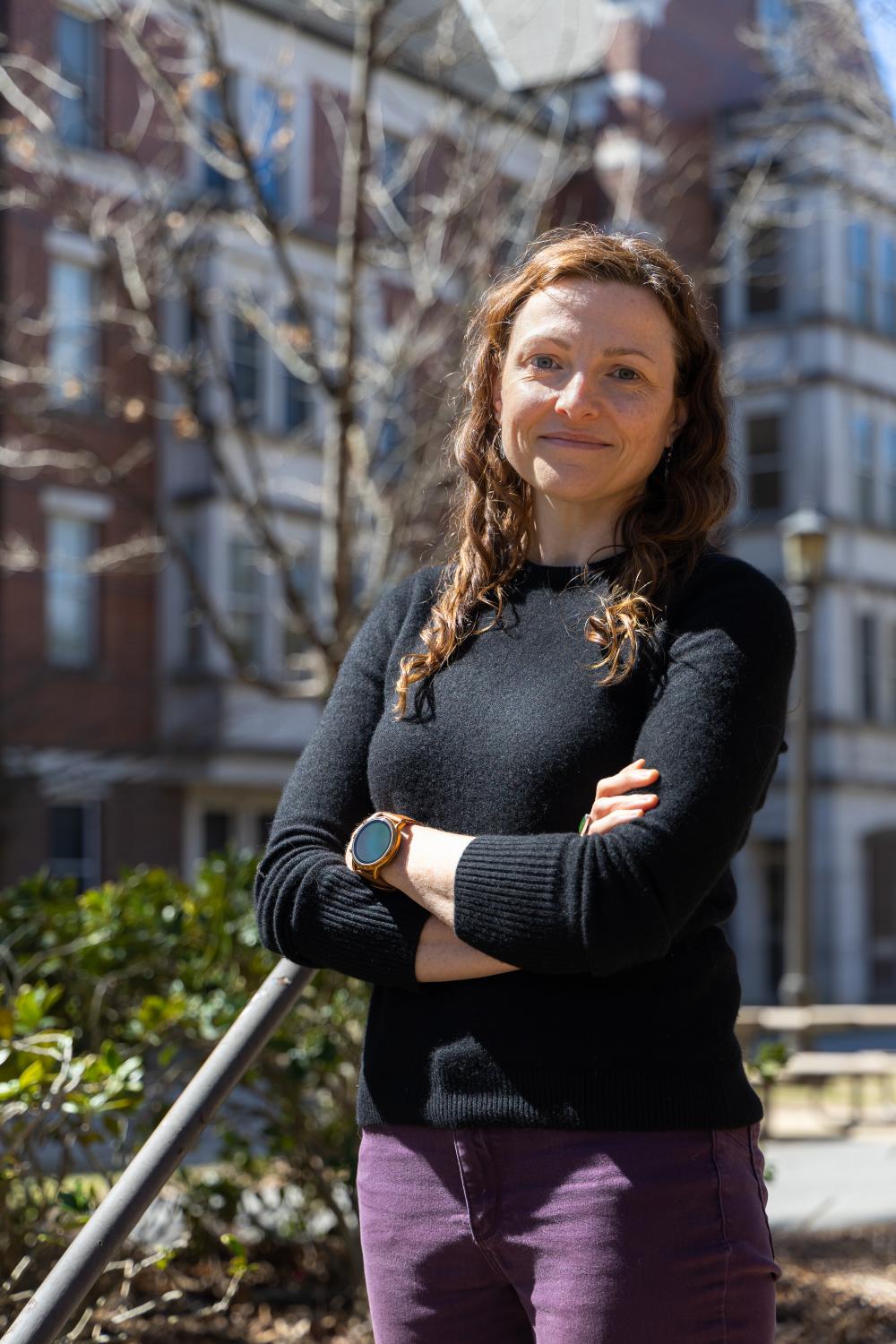
Claire Arthur
Professor
School of Music
When she was teaching piano to adults and children, Claire Arthur became interested in the vast differences between her students and started asking questions such as, “Why does this seem so easy for one student, but so difficult for another?”
“I became fascinated with music perception and cognition,” said Arthur, who dove back into academia to find some answers to those questions, and others, receiving her Ph.D. in music theory and cognition from Ohio State University. Today she researches the connections between music and emotion, and music and memory, using computers to perform musical analysis and tying that data to perception and cognition.
“We listen to songs, and they may not have lyrics or semantic content, but it affects us emotionally. I’m interested in uncovering the musical structures and using those structures to try to predict emotional reactions or responses to the music,” said Arthur, whose research includes perceptual experiments as well as computer data analysis and music information retrieval.
Her research also looks at music and perception through a cross-cultural lens. Music has been called the universal language — but it has many different dialects. Part of the work that Arthur and her students are doing involves trying to translate these differences, and perhaps discovering music’s evolutionary purpose in the process.
“Unlike verbal communication, eating, or fornication, there isn’t a clear evolutionary purpose,” Arthur said. “We still don’t know that. Is it just cheesecake, this vestigial thing that came along for the ride and stayed inside of us? We believe there is a great benefit in understanding what the similarities and differences are in the musical systems across different cultures.”

As a composer, Brittney Boykin has embraced the role of technology in her work. While some of her colleagues and mentors may still write music by hand, that just isn’t for her.
“I write music on my laptop of my MIDI keyboard. Technology has been a huge help to me and I’m grateful for that,” said Boykin, whose focus now is on composing opera, but she hopes to be writing film scores one day. “That is the goal, but right now it’s all about opera.”
Boykin has been commissioned by the Kennedy Center to write two operas. The most recent, Oshun, was performed in January by musicians in the Washington National Opera. Oshun is the goddess of divinity, femininity, fertility, beauty, and love, in West African tradition, or, “everything beautiful,” said Boykin, whose 20-minute opera “is about self-realization and transformation, in a nutshell, Oshun discovering her powers and what she is capable of doing to essentially save the world.”
A classically trained pianist who studied music at Spelman College, her choral piece, “We Sing as One,” was commissioned to celebrate the college’s founding. As an instructor in the School of Music and director of the treble choir at Georgia Tech, she’s encouraged by the talent and work ethic of her students.
“The Georgia Tech student is brilliant, driven, and ambitious,” she said. “It’s nice to have them bring that level of grit to making music. It’s pure joy.”
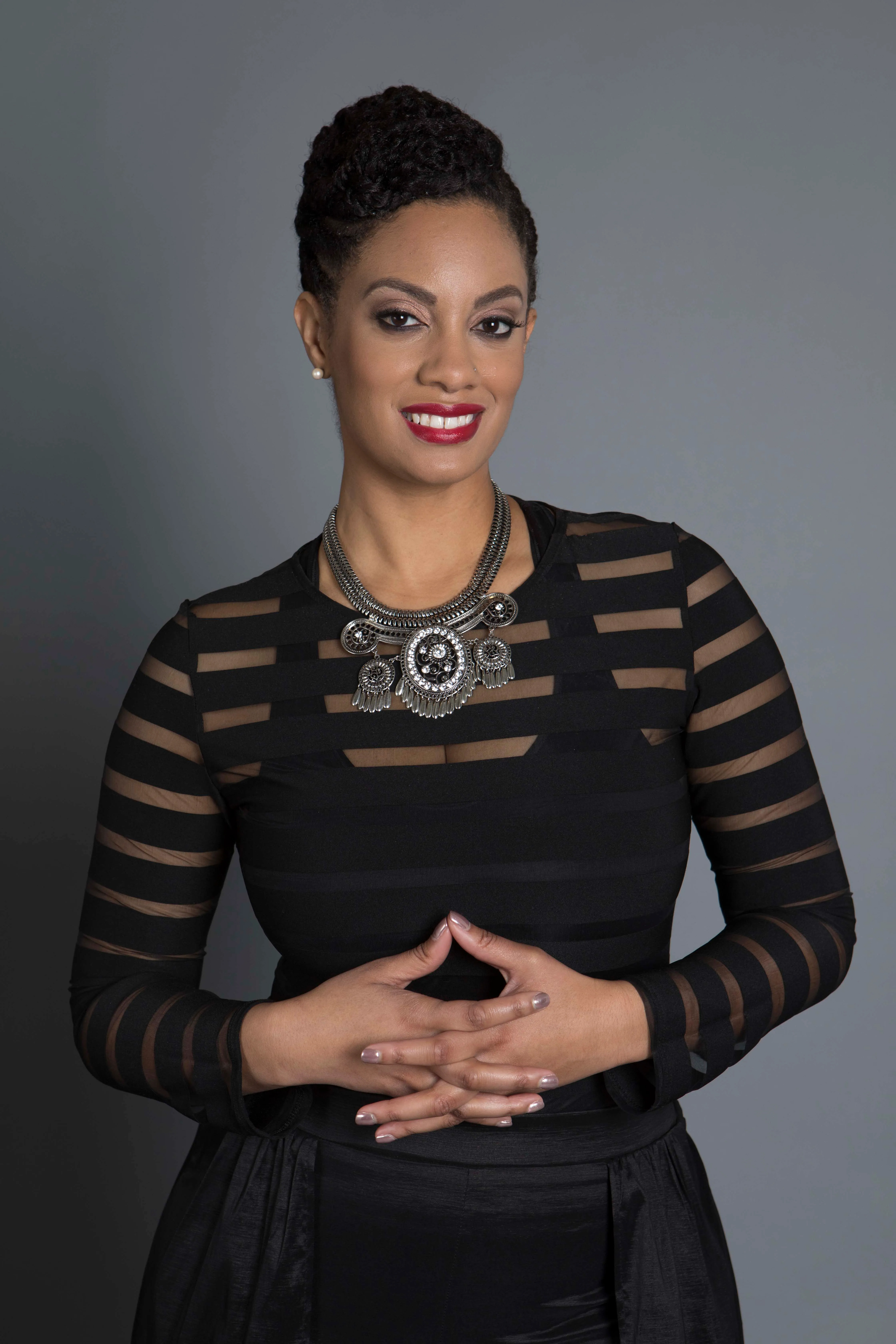
Brittney Boykin
Assistant Professor
Director, Treble Choir

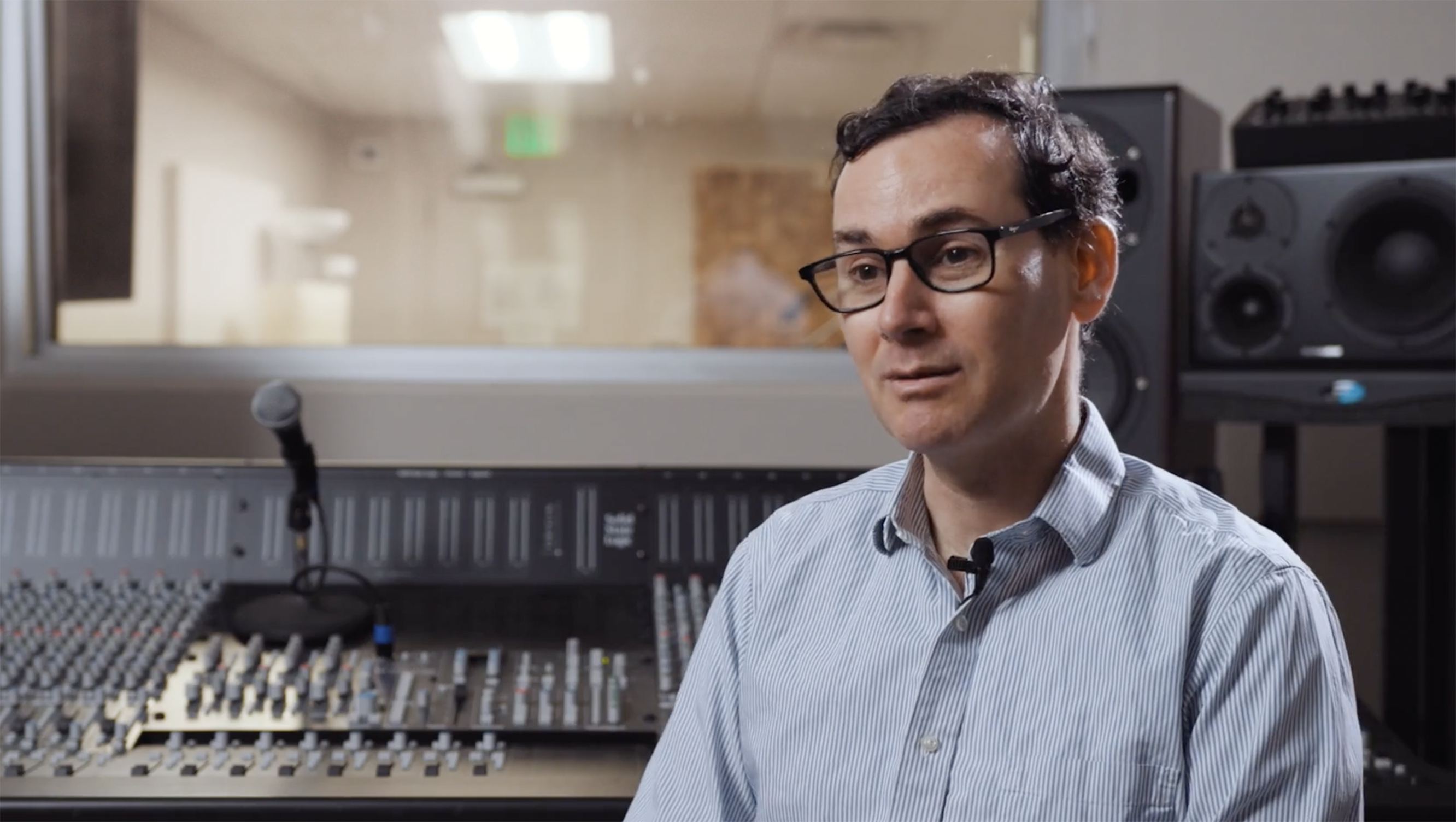
Jason Freeman
Professor and Chair
Jason Freeman, who loves creating music, once wrote, “I believe that all of us are musically creative and have something interesting to say. I also wish that everyone could share in this experience that I find so fulfilling.” He’s spent his career spreading that message through his work as a composer and music professor at a research university.
As an artist, he has blurred the traditional divisions between composer, performer, and listener, inviting the audience in on the act. For instance, his doctoral dissertation at Columbia University, a composition called Glimmer, used a chamber orchestra, novelty light sticks, video cameras, computer software, and more as the audience basically conducted the performance, creating signals that were transmitted to the musicians on stage.
“I’m still doing creative work involving interactive technologies, but now I’m using it more to connect people in creative collaborations in an educational setting, trying to develop curricula and tools to engage students mostly at the K-12 level,” said Freeman, co-founder (with fellow musician and Georgia Tech Professor Brian Magerko) of EarSketch, a free, web-based program that teaches coding (Python and JavaScript) through music composition and remixing.
EarSketch has been used by more than a million students around the world and translated into half a dozen languages. Through a collaboration with Amazon and music superstar Pharrell Williams, EarSketch is also being used in a national competition, Your Voice Is Power, designed to expand computer science education to young people from population groups currently underrepresented in the technology sector.
“Georgia Tech is very focused on serving our communities, on helping to improve the human condition,” Freeman said. “When we create art — when we create music — we are working to improve the human condition.”

Undergraduates in the School of Music are required to participate in one of the many ensembles for at least four semesters. Peter Gardner, a cello player who has been president of the Orchestra Club the past two years, does it simply because he loves it.
“During the pandemic, no one was playing in large ensembles, and this made me truly appreciate all my time in orchestras,” said Gardner, who used to busk on the streets of Savannah, his hometown. “Now that we are back to playing in person, I actively think how awesome it is that I get to play with other musicians and play such fun, beautiful music.”
Even the challenges and intensity of orchestra work are fun for Gardner. As the club president, he plans social events and helps the orchestra run smoothly, and it takes a lot of time, “but it’s time I really enjoy, so it is not much of a struggle. I make sure to stay organized, planning out specific times to practice my instrument and organize events.”
As a chemical engineering major, he is interested in food science, which he plans to study in graduate school. Currently, in the lab of J. Carson Meredith, professor and James Harris Faculty Fellow in the School of Chemical and Biomolecular Engineering and executive director of the Renewable Bioproducts Institute, he’s working on biodegradable food packaging — made from crabs and plants.
“This is work I’m very passionate about,” said Gardner, who said he still has energy left in his personal tank to keep on playing music. “It’s a refreshing contrast to the heavily STEM-focused academics. I could spend hours and hours learning to play in the correct style, let alone getting the notes right. The combination of the great music and learning keeps me coming back semester after semester.”
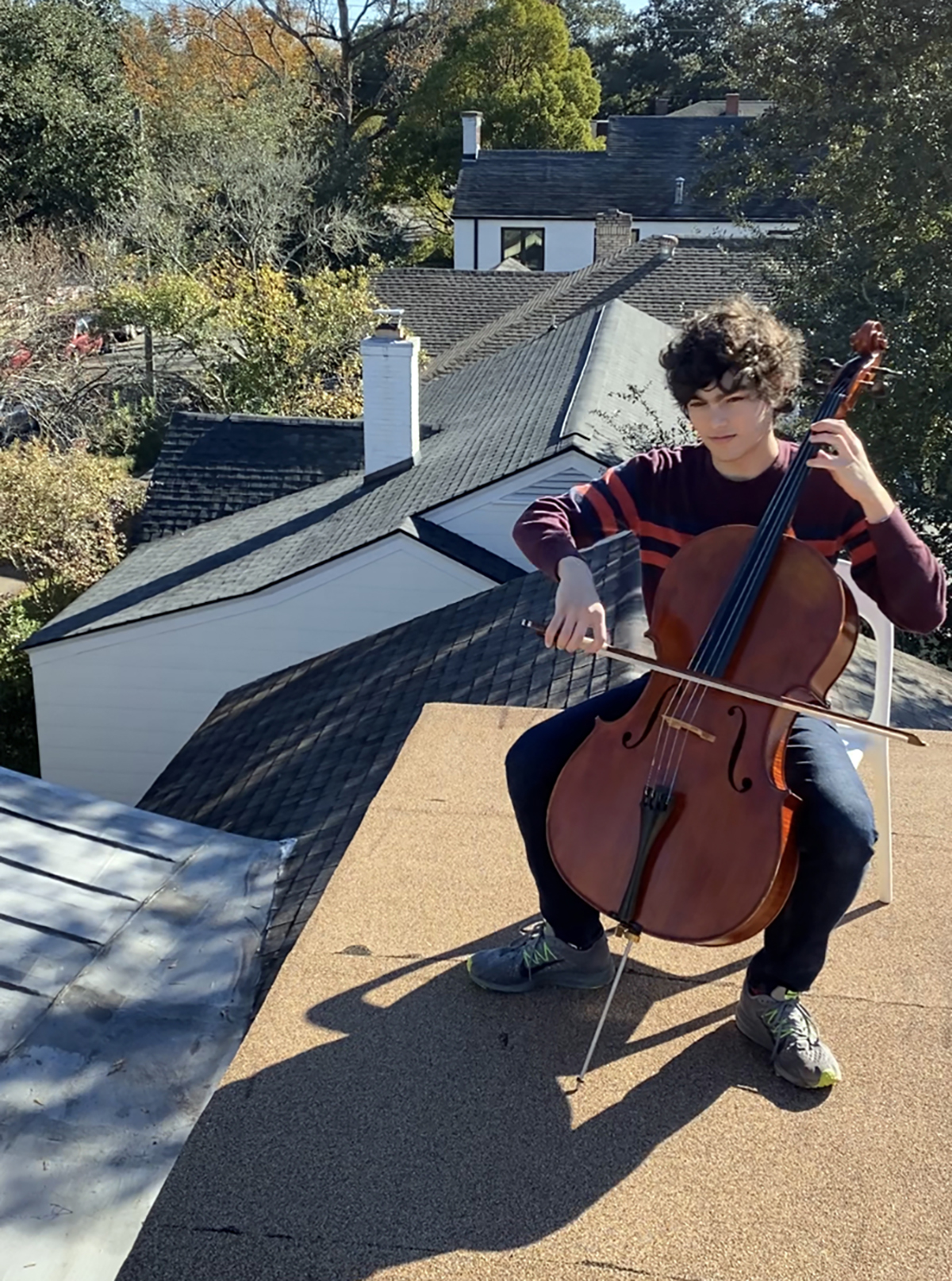
Peter Gardner
Undergraduate student
Chemical Engineering major

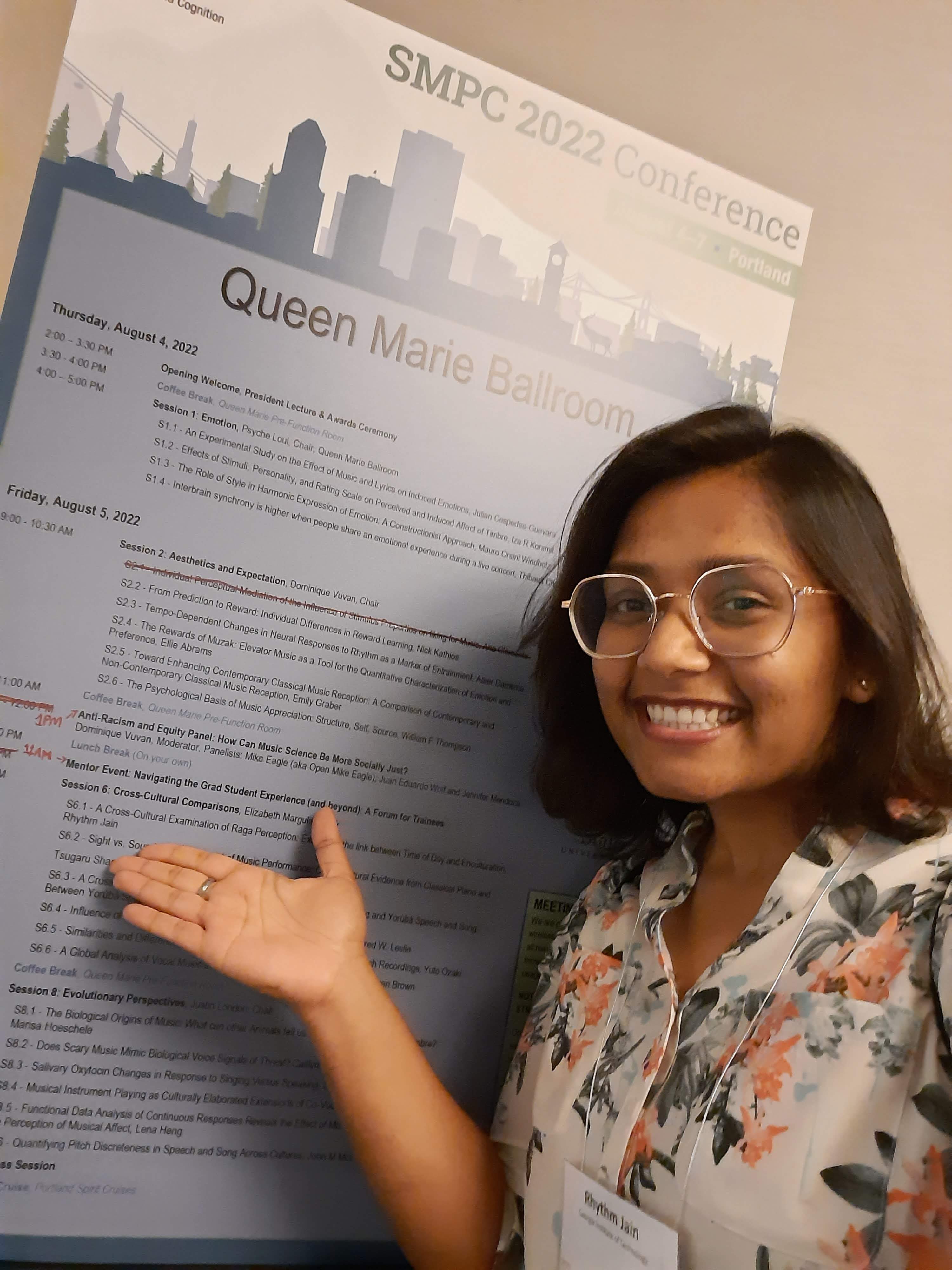
Rhythm Jain
Associate Scientist, Sirius XM
Recent Georgia Tech graduate
Rhythm Jain, who is a musician and a scientist, comes from a musical family that gave her the perfect name for the work she is doing now, which is all about music.
As the child of a military man, Jain moved around a lot in her native India, experiencing different regions, languages, cultures, and especially music.
“When my brother wanted to watch the 2011 Cricket World Cup, I didn’t care about the matches, but I asked him to call me whenever the national anthem of each country was being played,” said Jain, who helped lead Women in Music Tech at Georgia Tech when she was a student. “I was fascinated by this notion that each country expressed its patriotism in different ways melodically, and how the people from different countries perceived the music differently.”
Her interest in perception and cognition of music brought her to Georgia Tech, where some of her research while pursuing a Master of Music Technology was focused on studying ragas, the melodic framework in Hindustani classical music. Through her cross-cultural research on listener’s perception of various Hindustani ragas, Jain explored the link between time-of-day and enculturation.
Then she shifted gears to music transcription, developing algorithms to transcribe and translate the music of oral traditions. Now Jain, who has taught herself the guitar and is dabbling with electronic music and synthesizers and she is using the knowledge and skills she developed at the Georgia Tech School of Music to build music recommendation algorithms for Sirius XM/Pandora.

Alexander Lerch teaches computers to listen to and comprehend music, which puts him at the crossroads of multiple disciplines: signal processing, machine learning, music psychology, and systematic musicology.
Lerch literally wrote the book on audio content analysis. His textbook, An Introduction to Audio Content Analysis, published in 2012, has helped define educational practice in his field. The second edition has just been released, and there is also a companion website.
“When we listen to music, we can extract a lot of information from it,” Lerch said. “We might recognize the artists, and we can tap with the tempo, and if we are musicians, we might hear the chord progressions, and so on. So, the question is, how can we enable a computer to extract this kind of information?”
Lerch and his colleagues in the Music Informatics Group use AI-driven methods to expand the limits of how a machine listens to and understands music and develop the next generation of analysis technology.
“The work has many different potential applications, including music discovery, music education, creative listening, and music generation,” said Lerch, who co-founded zplane, a research-focused company that provides state-of-the-art music processing and analysis technology, and know-how, to the music industry.
The work also is helping graduates from the School of Music land great careers with a who’s who list of companies, like Apple, Bose, Dolby, Spotify, and SiriusXM, among others.
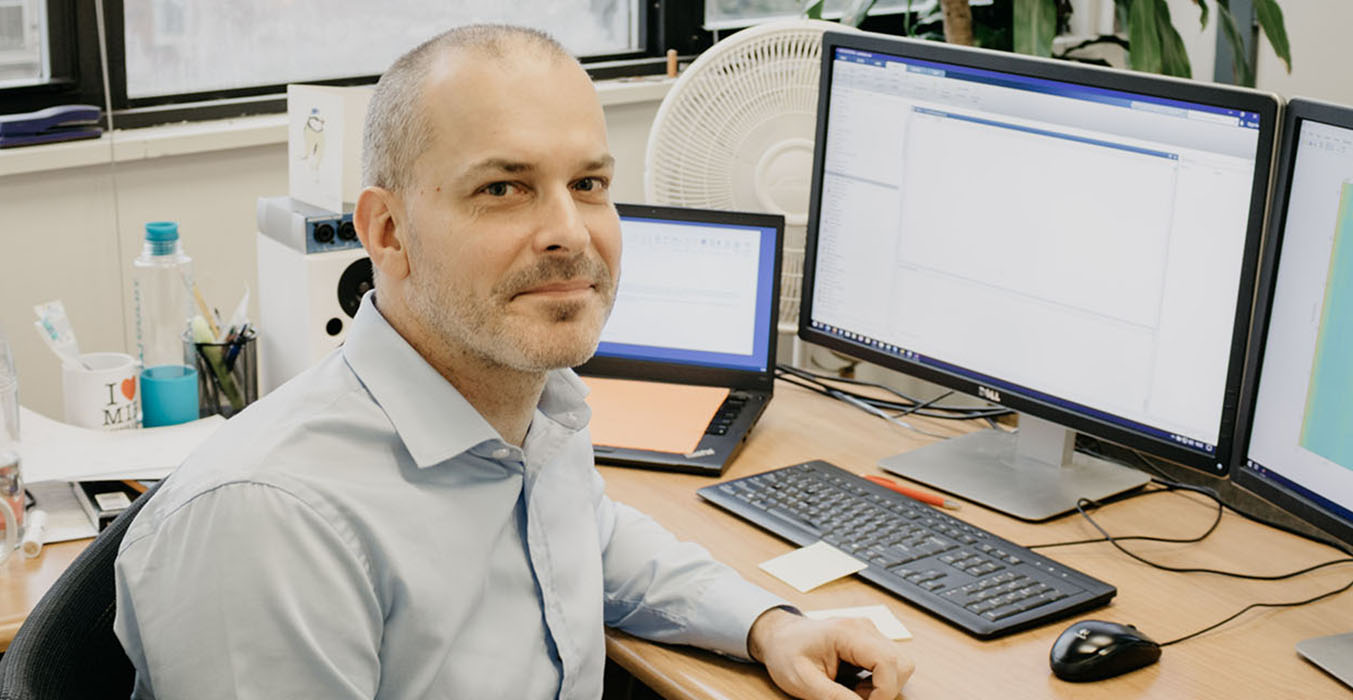
Alexander Lerch
Associate Professor
Director of Graduate Programs

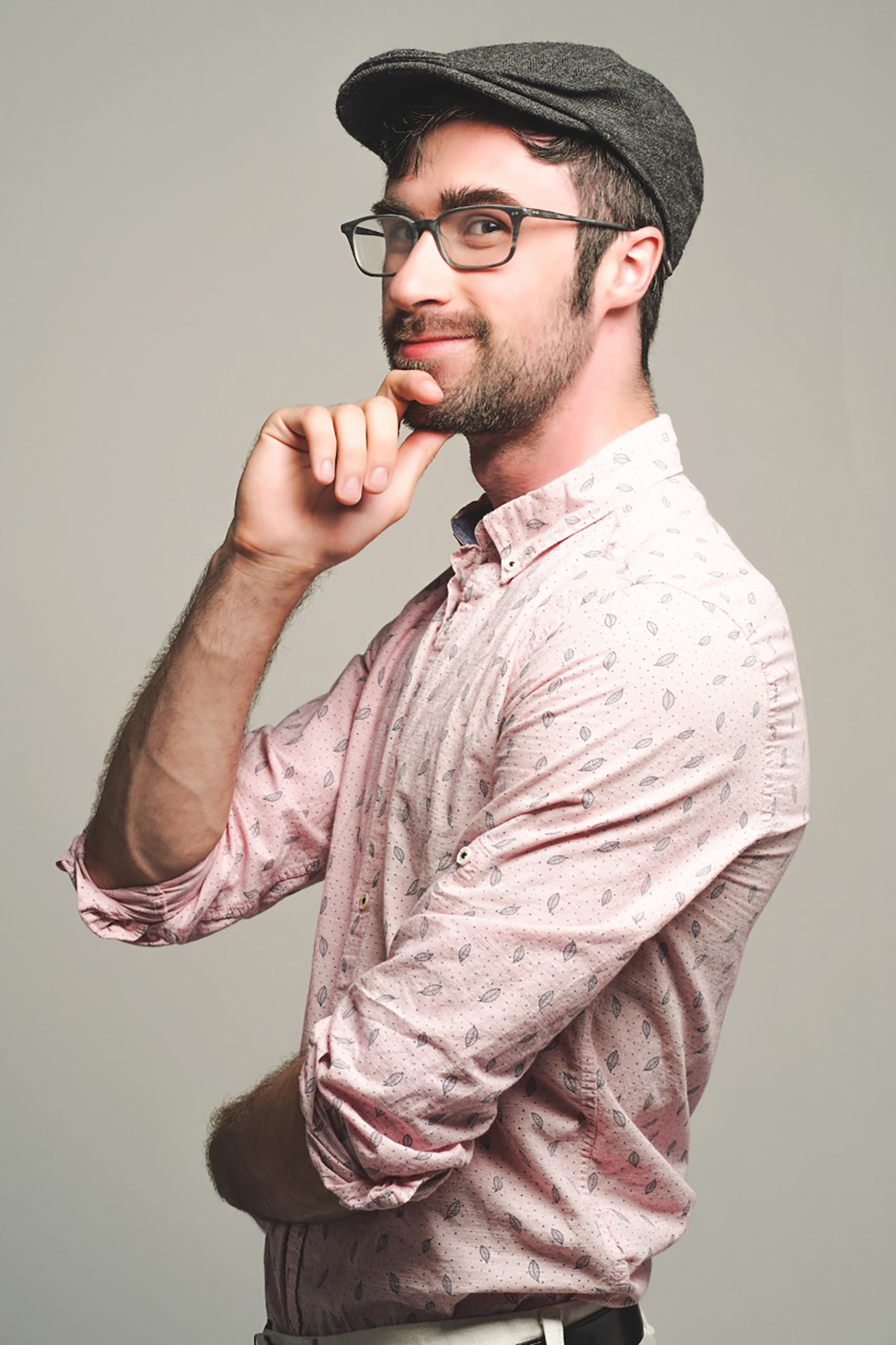
John McNamara
Graduate Student
“I’m interested in how music helps people get drawn into a video game,” said McNamara, whose research focuses on the psychological state called “flow,” which is when you are completely absorbed, focused, and involved in what you are doing, and enjoying the engagement.
“It’s the idea of being in the zone, in the present,” said McNamara, a French horn player who earned his undergraduate degree in physics and geosciences at Yale University. Following in the footsteps of fellow alumnus and School of Music Chair Jason Freeman, he performed in both the concert and marching bands at Yale.
Advised by Claire Arthur, McNamara is probing the role music plays in helping video game players achieve psychological flow, “where you achieve a high level of competence to the point that your actions become almost automatic. It’s been documented in many different activities, not just video games — performing music, dancing, playing sports, even household chores — this psychological state in which you’re completely focused on what you’re doing. I want to get at the nitty gritty of why and how that works.”

A piano and cello player since he was very young, Zhou came to Georgia Tech “because of its competitive environment and focus on STEM.” True to his interests, Zhou won the Georgia Tech Symphony Orchestra Concerto Competition in 2022.
The second-year student balances his computer science studies with his voluntary participation in the orchestra and makes it look easy. He credits orchestra director Chaowen Ting for some of that.
“The time commitment for orchestra is reasonable. Dr. Ting knows that most of us are in the same boat, where we enjoy playing our instruments but don’t have too much time to practice,” he said. And because time is limited, there is a bonus for Zhou: “We play a lot of pieces in a short amount of time in this orchestra, so the chance that I get to play a piece I really like increases.”
He enjoys being in the orchestra and practicing piano because it’s a welcome break in his busy days, “a time when I can focus solely on sounding good and expressing myself,” he said, adding, “I'll probably continue playing piano and playing cello in the orchestra as long as I find fun pieces to play, which will probably be a very long time.”
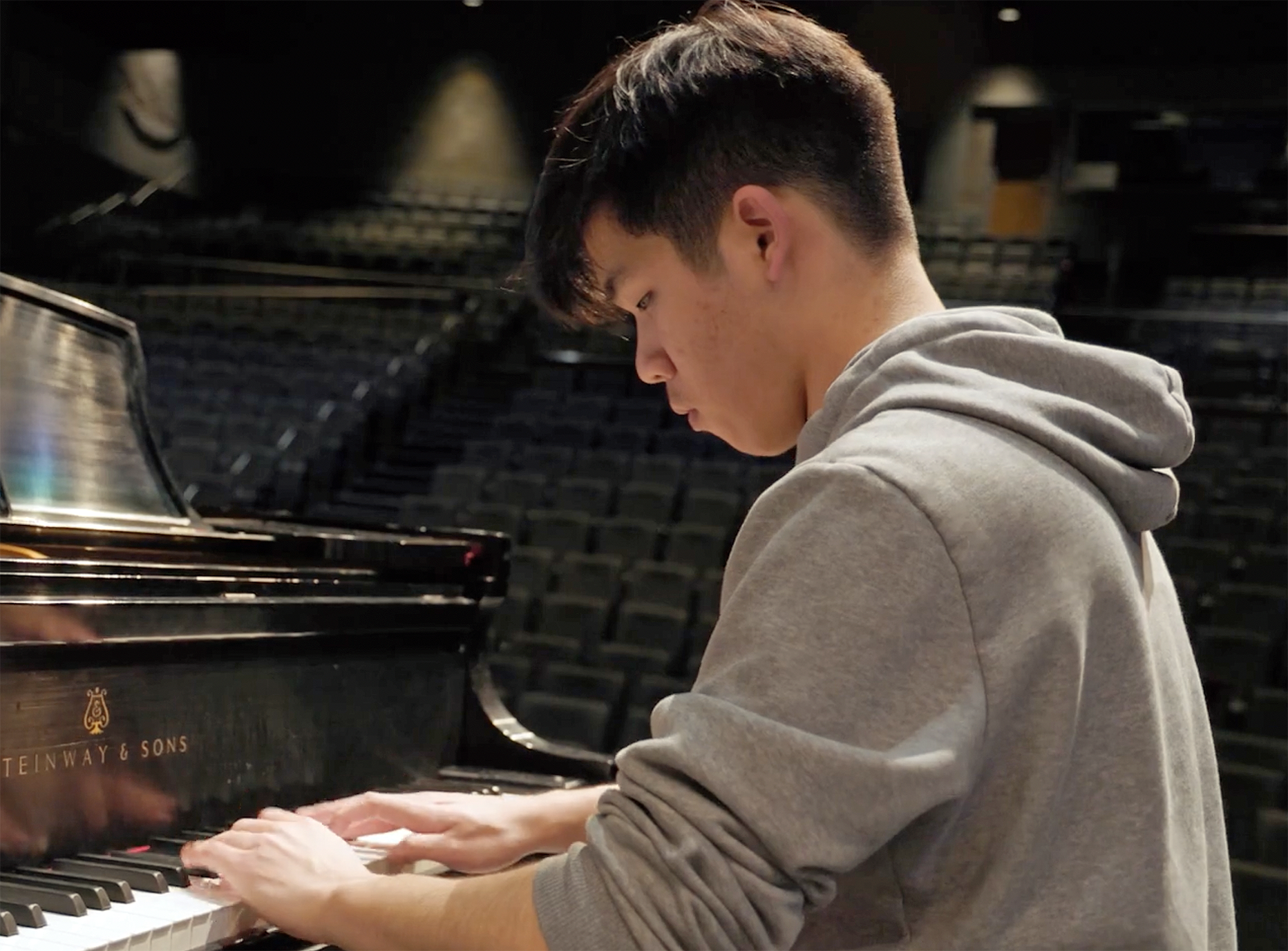
Matthew Zhou
Undergraduate student
Computer Science major




